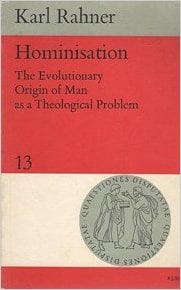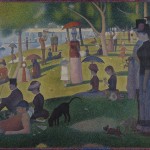The interview is a fake fabricated by Play4Real. There is an actual interview with Time but includes no mention of religion. However the theological significance of the trolling, and what it reveals about Christianity, are still relevant.
 It is addressed against one rather small branch of Christianity, but one that is rather loud in the United States: certain strands of conservative Evangelicalism (Not all Evangelicals!). It is so loud that some American Catholics might think that what it sometimes teaches–anti-evolutionism, fear of nature, and prudishness about violence–is in line with Catholic teaching. It is not.
It is addressed against one rather small branch of Christianity, but one that is rather loud in the United States: certain strands of conservative Evangelicalism (Not all Evangelicals!). It is so loud that some American Catholics might think that what it sometimes teaches–anti-evolutionism, fear of nature, and prudishness about violence–is in line with Catholic teaching. It is not.
- Catholicism, for all the mistakes it made in the early modern period within intra-ecclesial debates, never felt threatened by evolution–and certainly never condemned it as Karl Rahner’s Hominisation: The Evolutionary Origin of Man as a Theological Problem makes clear. John Henry Cardinal Newman’s The Development of Christian Doctrine, what might be called an evolutionary account of Christian dogma, predates The Origin of Species by nearly 15 years.
- The proximite between God and his Creation, nature, is a fundamental aspect of the Catholic imagination, whereas it is the Protestant imagination that tends to separate the two. It might not be a stretch to say that the pagan imagination only survives with us because it was incorporated into Catholic Christianity, whereas the Reformers tended to totally exterminate in their frequently foolish desire to return to a mythologically pure, non-Hellenistic, early Christianity.
- There are still many Catholics who make an Marcionite heretical distinction between the violent God of the Old Testament and the peaceful Gospels. This is rubbish. Terry Eagleton reminds us in Reason, Faith, and Revolution that:
For Christian teaching, God’s love and forgiveness are ruthlessly unforgiving powers which break violently into our protective, self-rationalizing little sphere, smashing our sentimental illusions and turning our world brutally upside down. In Jesus, the law is revealed to be the law of love and mercy, and God not some Blakean Nobodaddy but a helpless, vulnerable animal. It is the flayed and bloody scapegoat of Calvary that is now the true signifier of the Law.
Isn’t that as painful as some accounts of evolution, red in tooth and claw? Newman, in The Development of Christian Doctrine, brings these three points together:
But whatever be the risk of corruption from intercourse with the world around, such a risk must be encountered if a great idea is duly to be understood, and much more if it is to be fully exhibited. It is elicited and expanded by trial, and battles into perfection and supremacy. Nor does it escape the collision of opinion even in its earlier years, nor does it remain truer to itself, and with a better claim to be considered one and the same, though externally protected from vicissitude and change. It is indeed sometimes said that the stream is clearest near the spring. Whatever use may fairly be made of this image, it does not apply to the history of a philosophy or belief, which on the contrary is more equable, and purer, and stronger, when its bed has become deep, and broad, and full. It necessarily rises out of an existing state of things, and for a time savours of the soil. Its vital element needs disengaging from what is foreign and temporary, and is employed in efforts after freedom which become wore vigorous and hopeful as its years increase. Its beginnings are no measure of its capabilities, nor of its scope. At first no one knows what it is, or what it is worth. It remains perhaps for a time quiescent; it tries, as it were, its limbs, and proves the ground under it, and feels its way. From time to time it makes essays which fail, and are in consequence abandoned. It seems in suspense which way to go; it wavers, and at length strikes out in one definite direction. In time it enters upon strange territory; points of controversy alter their bearing; parties rise and around it; dangers and hopes appear in new relations; and old principles reappear under new forms. It changes with them in order to remain the same. In a higher world it is otherwise, but here below to live is to change, and to be perfect is to have changed often.
This is the world ends: With painful growth and change into the body of Christ; neither a bang, nor a whimper.
This is also how this passing gaming trend might be anti-Christian (in the very narrow sense outlined above), but not anti-Catholic.
If you’re still having trouble seeing the distinction see my posts on the Catholic imagination and the Protestant imagination for a comprehensive treatment.
Consider making a donation to this blog through the donation button on the upper right side of its homepage. Frankly, our family is just plain short on cash.
Stay in touch! Like Cosmos the in Lost on Facebook:












